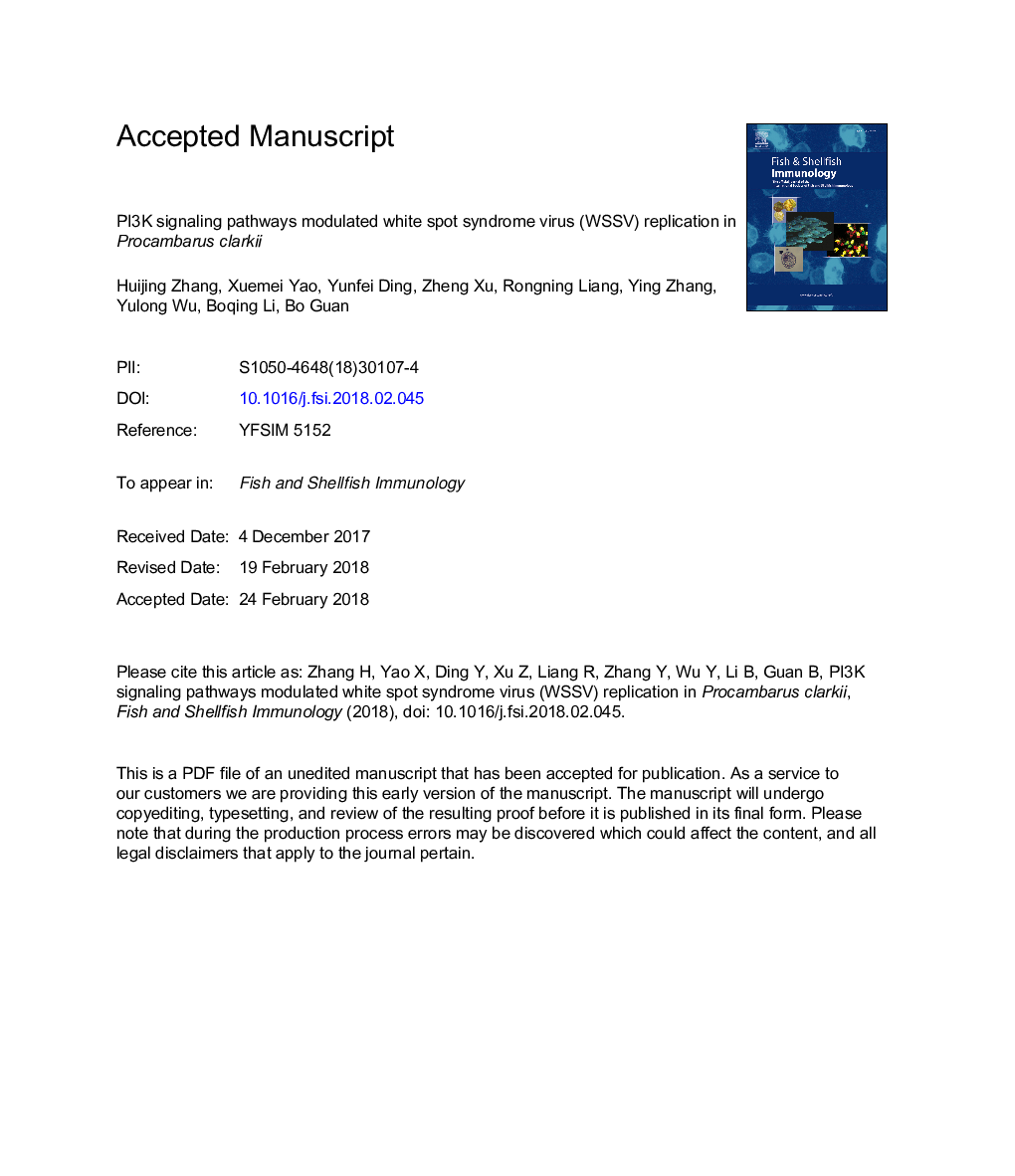| Article ID | Journal | Published Year | Pages | File Type |
|---|---|---|---|---|
| 8498541 | Fish & Shellfish Immunology | 2018 | 39 Pages |
Abstract
The PI3K/AKT signaling pathway is commonly exploited to regulate viral replication and affect the fate of infected cells. In the present study, a PI3K-specific inhibitor (LY294002) was employed to pretreat crayfish to evaluate the effects of PI3K/AKT signaling pathway in WSSV replication. The results showed that the WSSV copy numbers in crayfish pretreated with LY294002 were significantly lower than those in Tris-HCl pretreatment crayfish on the sixth and tenth day after WSSV infection. In semigranular cells, the apoptosis rates were up-regulated on the third day post-WSSV infection, and a significantly lower proportion of apoptosis cells were observed in LY294002-pretreatment group. The expression level of Bax, Bax inhibitor-1 and lectin mRNA in haemocytes of crayfish were increased after WSSV infection. After the secondary stimulation with Tris-HCl, the Bax expression level in LY294002-pretreatment crayfish was significantly higher than that of crayfish pretreated with Tris-HCl on the third or sixth day, but the Toll and lectin mRNA expression decreased significantly on the third, sixth and tenth day. The Bax mRNA expression levels in LY294002-WSSV group were significantly higher than those in Tris-HCl-WSSV group on the third and tenth day. The Bax inhibitor-1 mRNA expression levels in LY294002-WSSV group were significantly lower than those in Tris-HCl-WSSV crayfish on the third day. These results together indicated that the hosts PI3K/AKT signaling pathway play positive roles in WSSV replication through the balance between host cell apoptois and innate immune responses. This information is helpful to further understand the role of PI3K/AKT signaling pathway on WSSV replication in Decapoda crustaceans.
Related Topics
Life Sciences
Agricultural and Biological Sciences
Aquatic Science
Authors
Huijing Zhang, Xuemei Yao, Yunfei Ding, Zheng Xu, Rongning Liang, Ying Zhang, Yulong Wu, Boqing Li, Bo Guan,
